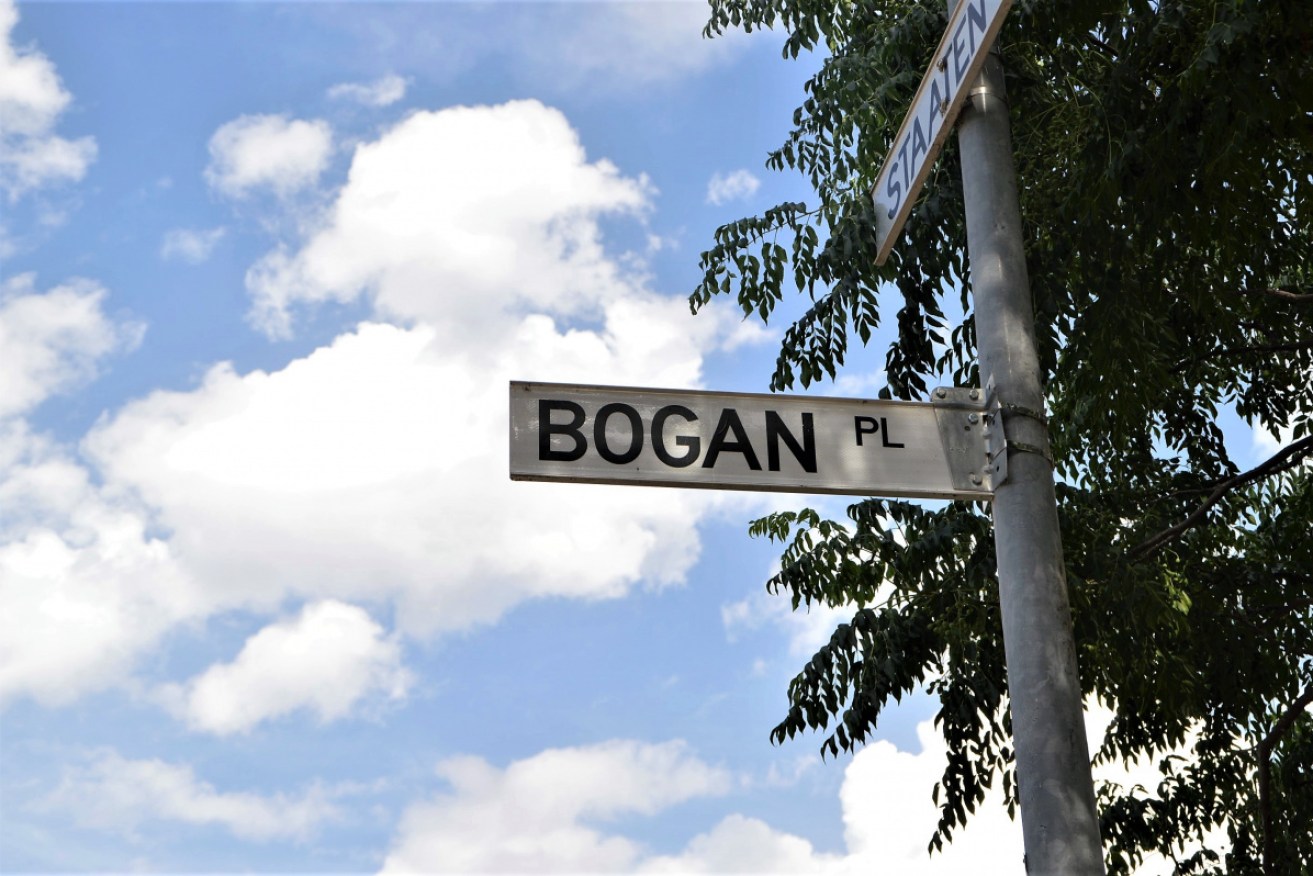Yeah, nah: Aussie slang hasn’t carked it, but we do want to know more about it

Is there anything more true blue than having a chinwag with ya cobber? Nah, mate. Photo: Getty
Writer C.R. Read cautioned in 1853 “that Englishmen going to the Australian digging should search their souls and ask themselves ‘if they can stand a little colonial slang’”.
This slang – our Australian slang – has been a lightning rod for pride, prejudice and confusion. “Dustbin language” writes one (not a huge fan), “people’s poetry” writes another (we’d agree).
Expressions like budgie smugglers, fair suck of the Siberian sandshoe or flat out like a lizard drinking may not be the stuff of great literature and poetry, but they draw on the same devices: Metaphor, irony and features of sound such as alliteration.
We know what you’re thinking: “Yeah, nah. Aussie slang’s carked it.”
When was the last time you heard someone say ‘cobber’ or ‘dinkum’?” Fairly recently, actually – we’re starting to collect these terms, and rest assured, we’re finding them.
What’s interesting about Australian slang
What’s interesting about Australian slang – as far as “slang” goes – is the mere fact that some of these words stick around for so long, and that we still call them slang.
They may not be part of your everyday lingo, but they can have a special place in your heart.
And heaps of grouse Aussie words have been doing the hard yakka for decades – grouse is some 100 years old.
Mate is even older, even though since the 1930s people have been worrying about its wellbeing. First it was the arrival of digger, then the threat of buddy or pal. Now we worry mate will die at the hands of dude.
But which words go, and which words stay, and which ones stay slangy? And why do we love this language so much?

Flat out like a … well, you know the one. Photo: Getty
Getting to the bottom of Australian slang
We could try to answer these questions by collecting data in a survey – and we are doing just that.
We can also look at the results others have gathered. We’re doing that too. And we can give you a teaser of what we’ve found.
ABC radio stations around the country have asked their listeners: “What do you think is the greatest Aussie slang word or phrase?”.
Out of more than 1000 unique phrases, the answer is (drum roll please!) – various versions of mate, followed by yeah, nah (though mate gets unfairly boosted because it’s tagged onto so many favourites like G’day mate).
Another place to look is in contexts where our knowledge about slang is made explicit. We’re fortunate to have such a data source: The Age runs a daily quiz on its puzzles page, and questions about slang appear occasionally.
A sample from April 2006 until March 2021 contains 109 such questions (that’s about one slang question every six weeks).
Of those 109 questions, 26 explicitly mention Australian slang and another two mention Australian rhyming slang.
Three expressions are repeated (furphy and spit the dummy each occur four times, and daks twice). This means there are 19 expressions identified as Australian, plus the two rhyming slang expressions – actually another of the 19 (cheese and kisses – “missus”) is rhyming slang too, but not identified as such.
Here’s the full list:
Sanger, dunny, bogan, daks, strides, spit the dummy, shoot through like a Bondi tram, sparky, drongo, thunderbox, gum sucker, mozzie, furphy, mandarin, pineapple, have a gander, ratbag, snag, cheese and kisses, illywhacker, dead horse, Noah’s Ark.
A cabinet of linguistic wonders
A curious collection, you might well be thinking. And you’d be right.
It has a few staples of you-beaut Aussie lingo, some minted in this country (sanger, snag, drongo).
Many are part of everyday language (furphy, bogan), and some we’ve even gifted to the rest of the world (ratbag and its offspring ratbaggery, spitting the dummy).
Shortenings like mozzie are also being exported (and let’s not forget the global Aussie rockstar selfie). These shortenings are thriving, as any sparky or garbo could tell you.
There are also a few lexical zombies on this list. When did you last use like a Bondi tram, or pineapple for that matter, unless you’re getting the rough end of it.
This pineapple, though, is the $50 note (compare the $5 prawn, $10 blue (swimmer), $20 lobster and $100 avo). They’re slang curiosities – rarely heard but still loved.
There are those on this list that (wait for it) were originally American English. True, pinpointing the origins of slang is notoriously difficult, but have a gander “to look” does make its first appearance in early 1900s American criminal slang.
Even illywhacker takes its inspiration from American spieler “con-man” (it needs some fossicking to track down illy’s origin in the word “eeler-spee”, a transposition of spieler).

‘Trackie daks’ were ideal for both watching the Olympics and competing in them. Photo: Getty
Others on this quiz list were once British English, but we’ve given them an Aussie makeover. Strides originally referred to pantaloons with plenty of stride.
And daks, a blend of Dad and slack(s), was the exclusive label of Simpsons of Piccadilly; it lives on in our beloved trackie daks (these days our pandemic pants) and newly minted dack “to steal something” (presumably by shoving it down your daks).
Dunny comes from dunnakin underworld slang for what was known euphemistically as “the necessary” (danna “dung” + ken “house”).
Even the thunderbox isn’t our own. Its origin is unquestionably British, as is the mandarin “senior public servant”, though we see its potential as Aussie rhyming slang mandarin duck.
Looking for the good oil on Aussie slang
“Who gives a mandarin”? We do, because there’s a special place in our cabinet of lexical wonders for slang and we want to know more about it.
You’ll find long lists on the internet, and it features large in these quizzes. However, people disagree about what is or isn’t slang, whether or not something is Aussie, whether slang is dying, and what any of this means to us Aussies.
Slang is different things to different people. There are some contexts in which it can be presumed, and others in which it requires a lot more discussion, and a lot more sleuthing.
Don’t leave us on our Pat Malone.
We’d be happy as Larry if you could share some of your knowledge of Aussie slang with us.
You can take our survey here.
Onya mate!
________________________________________________________
![]()
Kate Burridge, Professor of Linguistics, Monash University; Dylan Hughes, PhD Student, Monash University; Howard Manns, Senior Lecturer in Linguistics, Monash University; Isabelle Burke, Research fellow in Linguistics, Monash University; Keith Allan, Emeritus Professor of Linguistics, Monash University, and Simon Musgrave, Lecturer in Linguistics, Monash University
This article is republished from The Conversation under a Creative Commons license. Read the original article.








